READ MORE
Our Brands
- Announcements
- Debt Investors
- Supporting our clients
Investor Relations
- Announcements
Our Brands
ESG Disclosure Hub
TP ICAP is committed to disclosing and reporting all relevant data and information related to our own ESG performance.
Our Carbon Emissions & Energy Consumption
Our carbon reporting is aligned with the Streamlined Energy and Carbon Reporting (SECR) regulations. We also disclose via the CDP (Carbon Disclosure Project) and the GRI sections 302-1, 305-1, and 305-2. The Executive Owner of these areas is Max Spoto, Group Chief Operating Officer.
Carbon Emissions
Carbon Emissions1
| Total | Global | AMER | APAC | EMEA | |||||
20242 | 2023 | 20242 | 2023 | 20242 | 2023 | 20242 | 2023 | 20242 | 2023 | |
Scope 1t/CO2e | 912 | 1,442 | 239 | 1,157 | 46 | - | 627 | 286 | ||
Of which from Fuel Consumption | 685 | 1,288 | 165 | 1,074 | - | - | 521 | 214 | ||
Of which from Fugitive Emissions | 226 | 155 | 74 | 83 | 46 | - | 106 | 72 | ||
| ||||||||||
Scope 2 (location-based) tCO2e – Purchased Electricity, Heat or Steam | 4,691 | 6,182 | 1,804 | 3,176 | 1,691 | 1,922 | 1,196 | 1,085 | ||
Scope 2 (market-based) tCO2e – Purchased Electricity, Heat or Steam | 3,409 | 5,998 | 1,662 | 3,147 | 1,491 | 1,935 | 256 | 916 | ||
| ||||||||||
Scope 3 t/CO2e | 46,835 | 50,099 | ||||||||
Of which Purchased Goods and Services (inc. Capital Goods) | 35,422 | 38,583 | 35,422 | 38,583 | - | - | - | - | - | - |
Of which Fuel & Energy | 1,454 | 2,244 | - | - | 512 | 1,278 | 450 | 578 | 493 | 388 |
Of which Waste Disposal | 473 | 2,052 | - | - | 143 | 1,190 | 121 | 523 | 210 | 340 |
Of which Business Travel | 4,624 | 3,344 | 641 | 63 | 886 | 796 | 1,272 | 992 | 1,825 | 1,492 |
Of which Employee Commuting | 4,842 | 3,876 | - | - | 2,087 | 1,518 | 1,097 | 1,109 | 1,659 | 1,247 |
Of which Upstream Leased Assets | 20 | - | - | - | - | - | 12 | - | 7 | - |
| ||||||||||
Total t/CO2e | 52,438 | 57,723 | 36,063 | 38,646 | 5,671 | 9,115 | 4,688 | 5,124 | 6,016 | 4,838 |
- Due to rounding, the sum of individual emissions categories or regional breakdowns may not exactly match the reported emissions totals.
- This year, we changed our carbon emissions reporting supplier. It uses a different estimation methodology for fugitive emissions, fuel and electricity consumption, and emissions from waste disposal.
Energy Consumption
| Current reporting year 1 January 2024 – 31 December 2024 | Comparison reporting year 1 January 2023 – 31 December 2023 | ||
UK | Global (excluding UK) | UK | Global (excluding UK) | |
Energy consumption used to calculate Scope 1 emissions (kWh) | 2,449,507 | 1,194,097 | 1,110,505 | 5,983,697 |
Energy consumption used to calculate Scope 2 emissions (kWh) | 4,374,272 | 10,045,336 | 4,010,312 | 15,205,266 |
Energy consumption used to calculate Scope 3 emissions (kWh) | 3,312,446 | 15,964,431 | 5,744,540 | 6,756,708 |
Total energy consumption based on the above (kWh) | 10,136,255 | 27,203,864 | 10,865,358 | 27,945,671 |
Intensity ratio tCO2e (gross Scope 1, 2, + 3 Business Travel) per employee | 1.90 | 2.06 | ||
Methodology An independent 3rd Party has calculated the above greenhouse gas emissions estimates to cover all material sources of emissions for which the Group is responsible. The methodology used was that of the ‘Greenhouse Gas Protocol: A Corporate Accounting and Reporting Standard (revised edition, 2015)’. Responsibility for emissions sources was determined using the operational approach. All emission sources required under the ‘Companies, Partnerships and Groups (Accounts and non-financial reporting) Regulations 2016‘ are included.
STATEMENTS & POLICIES
Managing Our Energy Use
We are working with external experts to develop clearly defined greenhouse gas emission reduction targets and action plans in line with the emission reductions required to limit the global temperature increase to well below 2°C compared to pre-industrial levels.
Managing Our Other Resource Use (Water, Paper, Plastics and Waste Management)
Across our global offices, we take steps to minimize the environmental impact of our operations. There are paper, plastic, and metal recycling stations throughout our offices. We use ‘follow-me’ printer systems that require ID scans at printing stations to avoid wasting paper.
Supply chain management
We make every effort to manage our supply chains responsibly and hold our partners to high standards. We cultivate strong relationships with our key suppliers, managing risks and encouraging sustainability using a structured framework. Our Procurement team is working on developing new guidelines to ensure our IT equipment, office supplies, and other purchases are sustainably sourced.
Managing Our Energy Use
We are working with external experts to develop clearly defined greenhouse gas emission reduction targets and action plans in line with the emission reductions required to limit the global temperature increase to well below 2°C compared to pre-industrial levels.
Managing Our Other Resource Use (Water, Paper, Plastics and Waste Management)
Across our global offices, we take steps to minimize the environmental impact of our operations. There are paper, plastic, and metal recycling stations throughout our offices. We use ‘follow-me’ printer systems that require ID scans at printing stations to avoid wasting paper.
Supply chain management
We make every effort to manage our supply chains responsibly and hold our partners to high standards. We cultivate strong relationships with our key suppliers, managing risks and encouraging sustainability using a structured framework. Our Procurement team is working on developing new guidelines to ensure our IT equipment, office supplies, and other purchases are sustainably sourced according to certified schemes.
Task Force on Climate-related Financial Disclosures (TCFD)
Our social reporting is aligned with the SASB Investment Banking & Brokerage Sustainable Accounting Standard (SASB FN-IB-330a.1) and the GRI sections 102-8, 201-1, 401-1, and 404-1. The Executive Owner of these areas is Sue Maple, Group Head of Human Resources.
Employee Diversity and Inclusion
Gender representation by Category
| Current reporting year 2024 | Comparison reporting year 2023 | ||||
Category | Female | Male | Not disclosed | Female | Male | Not disclosed |
Executive management | 7 (39%) | 11 (61%) |
| 3 (16%) | 16 (84%) |
|
Non-executive management | 33 (29%) | 78 (71%) |
| 30 (26%) | 86 (74%) |
|
Professionals | 213 (23%) | 730 (77%) |
| 232 (24%) | 747 (76%) |
|
All other employees | 1,143 (27%) | 3,154 (73%) | 9 (0%) | 1,081 (26%) | 3,092 (73%) | 9 (1%) |
US-only percentage racial/ethnic group
Current reporting year (2024) | ||||||
Category | Asian | Black or African American | Hispanic or Latino | White | Other | Not disclosed |
Executive management |
|
|
| 2 (100%) |
|
|
Non-executive management | 1 (5%) |
|
| 20 (90%) |
| 1 (5%) |
Professionals | 29 (11%) | 6 (2%) | 10 (4%) | 177 (66%) | 5 (2%) | 43 (16%) |
All other employees | 105 (8%) | 37 (3%) | 95 (8%) | 739 (60%) | 15 (1%) | 245 (20%) |
Comparison reporting year (2023) | ||||||
Category | Asian | Black or African American | Hispanic or Latino | White | Other | Not disclosed |
Executive management | 1 (33%) |
|
| 2 (67%) |
|
|
Non-executive management | 1 (4%) |
|
| 24 (92%) | 1 (4%) |
|
Professionals | 31 (10%) | 8 (3%) | 10 (4%) | 195 (65%) | 4 (1%) | 50 (17%) |
All other employees | 107 (9%) | 40 (3%) | 102 (8%) | 755 (61%) | 19 (2%) | 215 (17%) |
We collect ethnicity/racial demographic data for US-based employees to meet the reporting requirements set out by the US Equal Employment Opportunities Commission.
Employee Turnover and new hires
Category | Current reporting year (2024) | Comparison reporting year (2023) | |||||
Female | Male | Not disclosed | Female | Male | Not disclosed | ||
Turnover by gender | 251 (31%) | 557 (69%) | 5 (1%) | 260 (28%) | 648 (71%) | 7 (1%) | |
New hires by gender | 302 (34%) | 583 (65%) | 8 (1%) | 320 (33%) | 656 (66%) | 8 (1%) | |
Category | Current reporting year (2024) | Comparison reporting year (2023) | ||||||
<30 | 30-50 | 50+ | Not disclosed | <30 | 30-50 | 50+ | Not disclosed | |
Turnover by age group | 279 (34%) | 355 (44%) | 169 (21%) | 10 (1%) | 275 (30%) | 455 (50%) | 170 (18%) | 15 (2%) |
New hires by age group | 454 (51%) | 337 (38%) | 84 (9%) | 18 (2%) | 468 (48%) | 395 (40%) | 107 (11%) | 14 (1%) |
Category | Current reporting year (2024) | Comparison reporting year (2023) | ||||
APAC | EMEA | Americas | APAC | EMEA | Americas | |
Turnover by region | 190 (23%) | 389 (48%) | 234 (29%) | 219 (24%) | 421 (46%) | 275 (30%) |
New hires by region | 244 (27%) | 454 (51%) | 195 (22%) | 259 (26%) | 492 (50%) | 233 (24%) |
Share of employment contracts
Employee contract by gender | Current reporting year (2024) | Comparison reporting year (2023) | ||||
Female | Male | Not disclosed | Female | Male | Not disclosed | |
Permanent | 1,358 (26%) | 3,921 (74%) | 9 (0%) | 1,304 (25%) | 3,874 (74%) | 9 (1%) |
Temporary | 38 (42%) | 52 (58%) |
| 42 (39%) | 67 (61%) |
|
Employment type by gender | Current reporting year (2024) | Comparison reporting year (2023) | ||||
Female | Male | Not disclosed | Female | Male | Not disclosed | |
Full-time | 1,355 (25%) | 3,950 (74%) | 9 (0%) | 1,299 (22%) | 3,909 (74%) | 9 (1%) |
Part-time | 41 (64%) | 23 (36%) |
| 47 (59%) | 32 (41%) |
|
Employee contract by region | Current reporting year (2024) | Comparison reporting year (2023) | ||||
APAC | EMEA | Americas | APAC | EMEA | Americas | |
Permanent | 1,184 (22%) | 2,583 (49%) | 1,521 (29%) | 1,131 (22%) | 2,505 (48%) | 1,551 (30%) |
Temporary | 26 (29%) | 55 (61%) | 9 (10%) | 31 (28%) | 64 (59%) | 14 (13%) |
Employee training hours
| Current reporting year (2024) | Comparison reporting year (2023) |
Average training hours per employee | 7.4 | 6.2 |
Employee training completion rates
| 2024 |
Permanent employees trained on business ethics | 100% |
Permanent employees trained on inclusion | 100% |
Charitable contributions
Current reporting year (2023) | Comparison reporting year (2022) |
£5.2m | £5.2m |
- Tax and other social payments
The Group Tax Strategy explains that the Group is committed to complying with tax laws in a responsible manner and to having open and constructive relationships with tax authorities wherever we operate, and that the Group’s tax risk appetite is low. The Group made payments to tax authorities for 2024 of £578m (2023: £646m), comprising corporation tax, premises taxes, employer’s social security payments, income taxes and social security paid on behalf of employees in the UK and the US (the main jurisdictions in which it operates), and VAT/sales taxes borne and collected. In addition, the Group makes further tax payments to the tax authorities in other tax jurisdictions in which it operates. - Equality, diversity and discrimination commitment
Equality, Diversity and Discrimination | TP ICAP - Employee health and safety
Health and safety are critically important to TP ICAP. We are committed to protecting the health and safety of our colleagues, customers, suppliers, and any visitors to our offices. We recognize our duty to protect people from the risk of harm arising from the day to day activities in our business, and so we provide and maintain a safe working environment that protects both physical and mental wellbeing. We are in the process of identifying and developing a health and safety management system to maintain the appropriate controls across our offices. - Gender Pay Gap Report
Gender Pay Gap Report 2023 - Human rights and freedom of association commitment
Human Rights and Freedom of Association | TP ICAP - Procurement and modern slavery commitment
Procurement and Modern Slavery | TP ICAP
Our corporate governance practices are well aligned with shareholder interests. In addition to our statutory obligations, we have chosen to disclose the following information as part of our ESG Reporting Framework.
Governance disclosure | Overview of core metric | 2024 Disclosure |
Political Contributions Standard(s): GRI section 415.1 Executive Owner(s): Robin Stewart, Group CFO | Disclosure of total amount of political contributions made. | £nil It is the Company’s policy not to make cash contributions to any political party. However, within the normal activities of the Group, there may be occasions when an activity might fall within the broader definition of ‘political expenditure’. Therefore, the Company has sought to obtain shareholder authority to make limited political donations at each AGM. During 2024, no political donations were made by the Group. |
ESG fines Standard(s): GRI section 307-1 Executive Owner(s): Robin Stewart, Group CFO | Provision for fines and settlements specified for ESG issues in audited accounts. | £nil |
Incorporation of ESG factors into brokerage activities Standard(s): SASB FN-IB-410a.3 Executive Owner(s): Regional Heads of Global Broking; Andrew Polydor, CEO, Energy & Commodities | Description of approach to incorporation of ESG factors in brokerage activities. | Incorporation of ESG Factors in brokerage activities is detailed in the Supporting our clients' section of the 2024 Annual Report page 29. |
Systemic risk management Standard(s): SASB FN-IB-550a.2 Executive Owner(s): Veronica Lazenby, Group Chief Risk Officer | Description of approach to incorporation of results of mandatory and voluntary stress tests into capital adequacy planning, long-term corporate strategy, and other business activities. | TP ICAP conducts robust assessments of the principal risks facing the Group, including those that would threaten its business model, future performance, solvency or liquidity, and reputation. As part of our risk management process, the Group undertakes stress testing and scenario analyses to enhance its understanding of its risk profile. This includes the conducting of reverse stress tests to identify those risks which could render the Group’s business model unviable in an extreme scenario. Effective risk management is essential to the financial strength and resilience of the Group, and for delivering its business strategy. The Group manages its risk profile through its enterprise risk management framework (‘ERMF’). The Group recognises that to ensure the effective operation of the ERMF, it must implement an appropriate risk management culture that fosters the desired risk management values and behaviours, and that is aligned to TP ICAP’s values. This includes promoting an environment of openness that encourages the reporting and discussion of risk-related matters and incidents. The Group seeks to achieve the implementation of its risk management culture through a range of actions. These include the setting of an appropriate ‘tone-from-the-top’, clear communication of risk management expectations and responsibilities, and through remuneration structures that effectively support the achievement of the desired risk management behaviours. A robust risk framework will also enable us to play our role in maintaining the integrity and professionalism of the markets where we operate and should also be a competitive differentiator for our clients who are increasingly looking beyond liquidity and pricing to broader ESG considerations when selecting their service providers. |
Promoting Transparent and Efficient Capital Markets Standard(s): SASB FN-EX-410a.1 Executive Owner(s): Philip Price, Group General Counsel | Number and average duration of a) halts to public release of information and b) pauses related to volatility | The Group has numerous trade and transaction reporting requirements that it has to meet, which are both regulatory and exchange driven. The majority of the Group’s reporting requirements are completed by integrated, end-to-end reporting systems across a wide range of regulatory regimes, for example MiFID II and TRACE. With these in place, the Group has effective systems and controls to alert us of any breaches to the timings of the publication of this data, which would allow us to remediate issues as soon as possible. The Group recognises that accurate and timely reporting is essential to transparent and efficient markets; to achieve this, the Group has an ongoing programme of work to improve the stability of its reporting systems and infrastructure. Number and average duration of: a) halts to public release of information: nil b) pauses related to volatility: nil |
Managing conflicts of interest Standard(s): SASB FN-EX-410a.1; SASB FN-EX-510a.2 Executive Owner(s): Philip Price, Group General Counsel; Amir Zaidi, Group Head of Compliance | Total amount of monetary losses as a result of legal proceedings with fraud, insider trading, anti-trust, anti-competitive behaviour, market manipulation, malpractice, or other financial industry laws or regulations. | Confidence in TP ICAP’s integrity to act on behalf of its customers is central to the relationship of trust we have with our customers. This means that when providing services, TP ICAP will always act in the customer’s best interests, putting customers’ interests ahead of its own. The Group has put in place the necessary policies and procedures to meet its obligations with regards to the identification, prevention and management of conflicts of interest. TP ICAP has robust internal policies and procedures in place which require all staff to identify and escalate any identified conflicts of interest, whether business or personal, in accordance with a formal escalation process. Such internal obligations enable the Group to continually identify new conflicts of interest which arise in its business and to implement those measures required to adequately monitor, manage and control the potential impact of those conflicts on its customers. |
Managing Business Continuity and Technology Risks Standard(s): SASB FN-EX-550a.1 Executive Owner(s): Max Spoto, Group Chief Operating Officer | Number of significant market disruptions and duration of downtime | Throughout 2024, TP ICAP experienced no IT or Business Continuity incidents that caused significant market disruption or had a material adverse effect on our business. |
Managing Business Continuity and Technology Risks Standard(s): SASB FN-EX-550a.2 Executive Owner(s): Max Spoto, Group Chief Operating Officer | Number of data breaches, percentage involving personally identifiable information, and number of customers affected | No data breaches were experienced during 2024 within the TP ICAP perimeter. |
Managing business continuity and technology risks Executive Owner(s): Max Spoto, Group Chief Operating Officer | | TP ICAP’s Business Continuity Management (‘BCM’) practices are governed globally, with the objectives of ensuring the safety of staff, minimising the impact of a business disruption, providing effective crisis management, and allowing for the continuation and recovery of critical systems and services. BCM is embedded in TP ICAP’s culture, and the Group is committed to maintaining processes and plans to enable critical functions to continue following a disruptive event. A formal governance structure exists with documented responsibilities, including regional management and executive oversight via Risk Committees. TP ICAP’s Crisis Management teams are organised on a global and regional level: Gold (Global, Strategic), Silver (Regional, Tactical), and Bronze (Office, Operational). Crisis Management is the initial response to a major disruption, designed to resolve any incident quickly without the need to relocate or reduce critical TP ICAP business operations. TP ICAP has regional Silver Teams with detailed plans to provide an effective and timely response to disruptive events of varying severity and type. TP ICAP has also invested in an Emergency Notification System to facilitate timely, effective global alerts to TP ICAP employees during a disruptive event. All events must be escalated in accordance with the Group’s Event Rating and Escalation Scale, as stated in the Group’s Enterprise Risk Management Framework. TP ICAP operates a comprehensive Change Management process for all technology changes, including regional and global Change Advisory Boards, which meet weekly and where all changes are reviewed for approval. Any failed changes are tracked with associated problem tickets as part of a failed change problem management process. IT incidents are tracked and managed based upon severity of incident against an application and IT Services tiering scale. A formal problem management process is operated to track actions arising from incidents, with thematic reviews for repeat incidents or common patterns. |
- Anti-Bribery and Corruption (ABC) Policy
- Anti-Money Laundering (AML) and Counter Terrorist Financing (CTF) Policy
- Complaints Procedure
- Group Tax Strategy
- Global Whistleblowing Policy
- Supplier Code of Conduct
- More information on regulatory disclosures applicable to our different broking entities in different regions can be found here:

Copyright © 2026 TP ICAP















